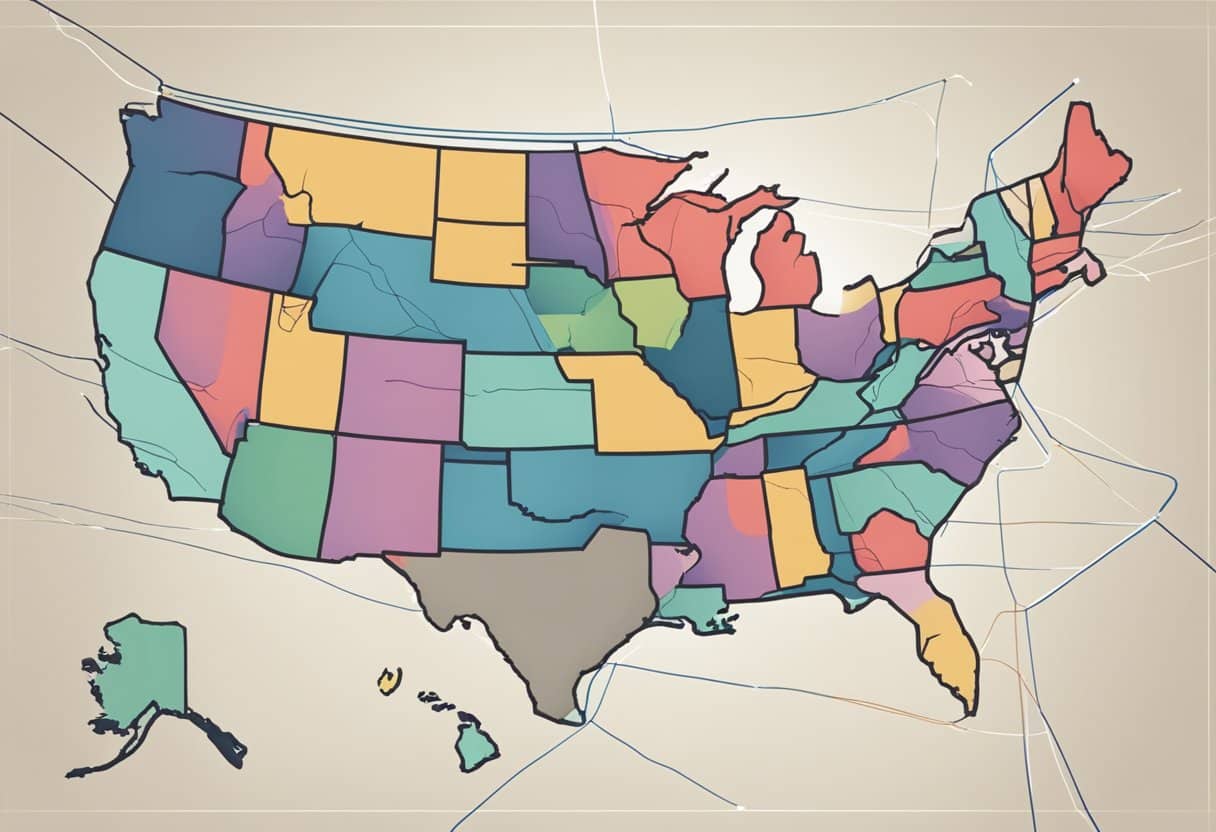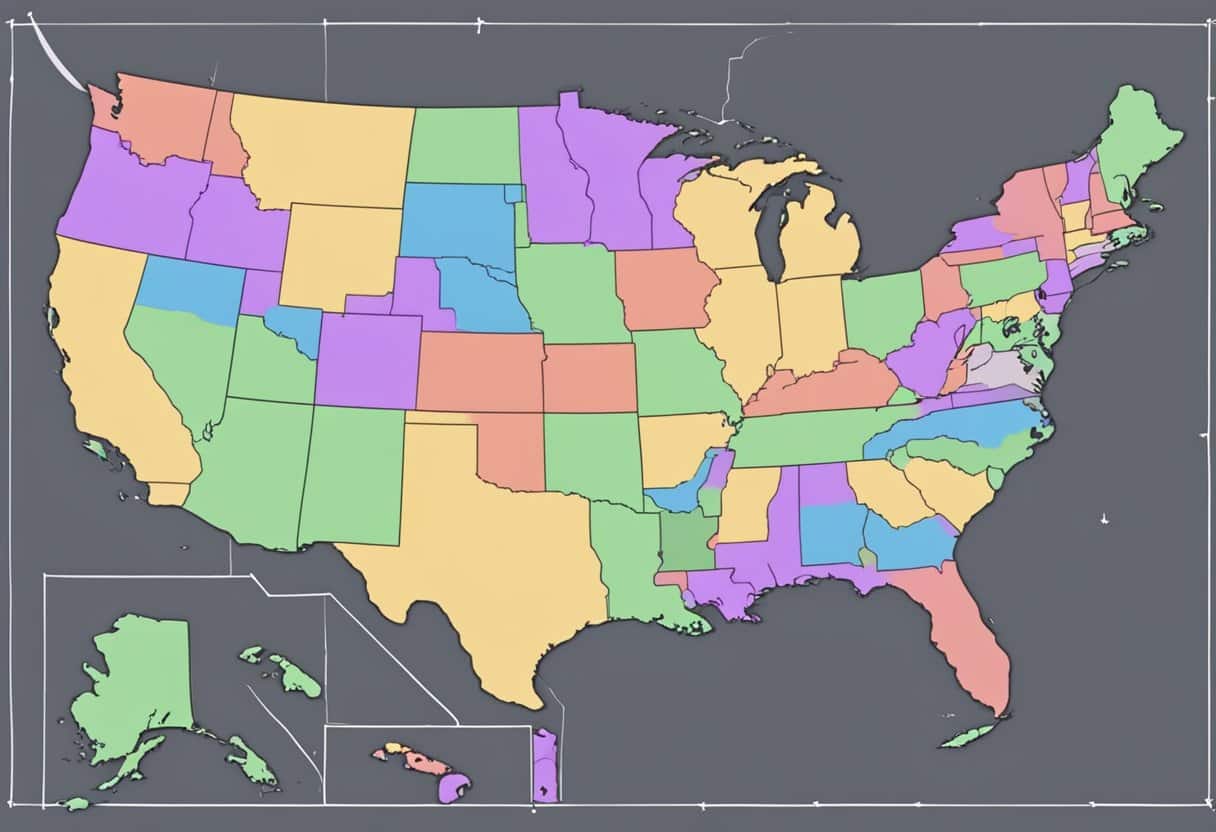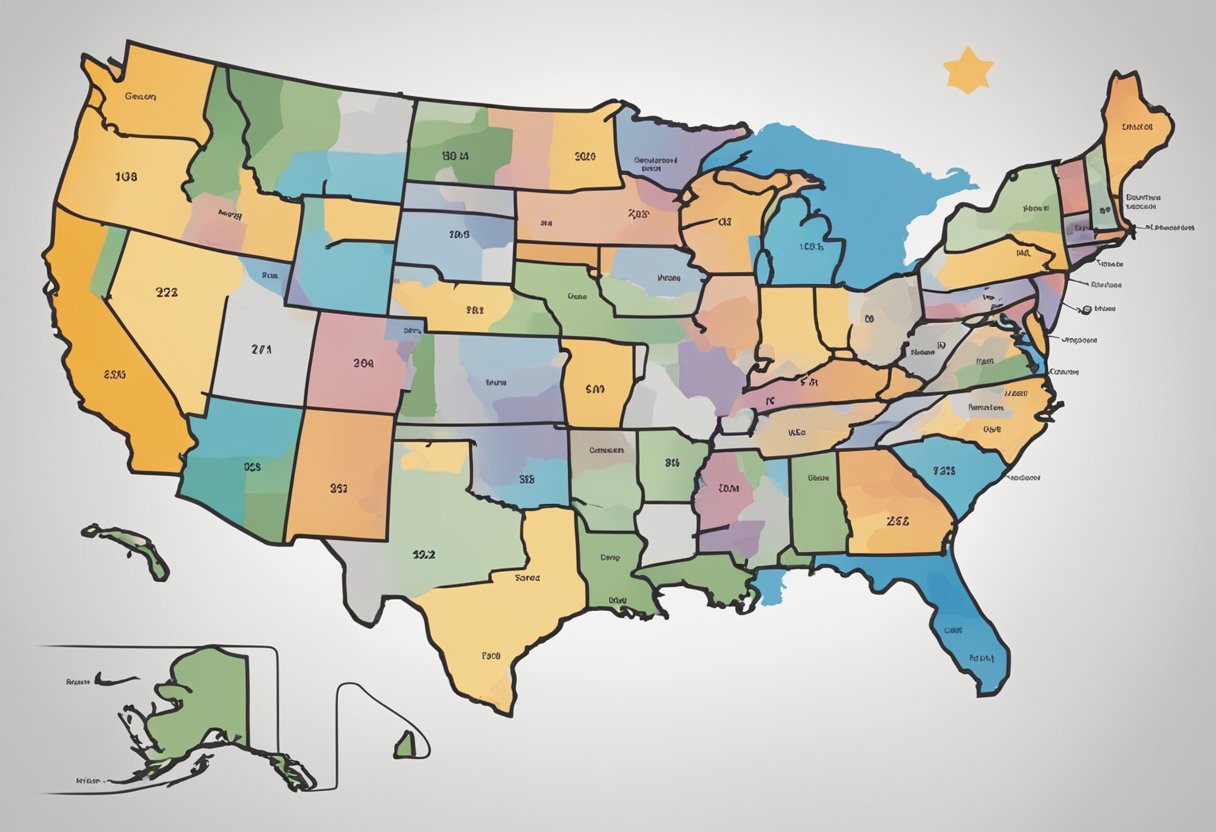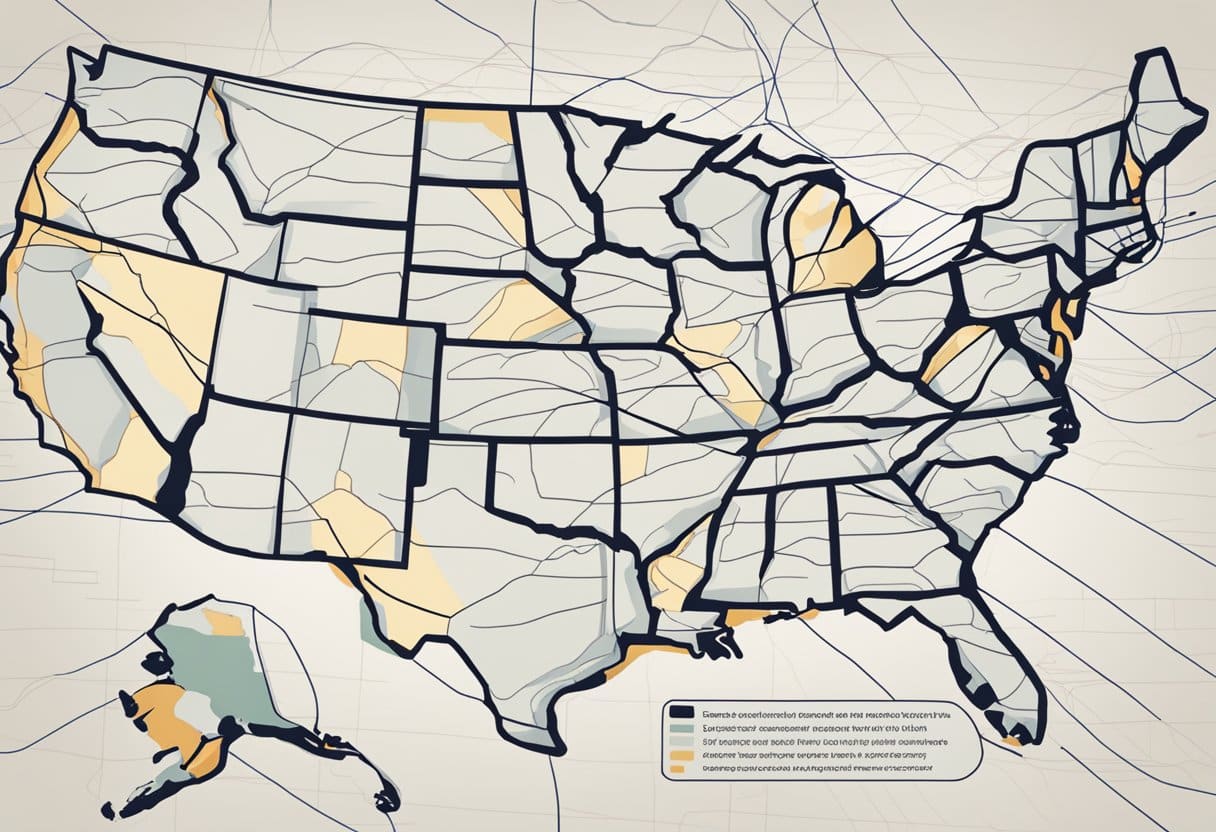The US online poker landscape continues to evolve in 2025, with notable expansions in interstate compacts. As of March 2025, five states have joined the multi-state poker agreement, creating larger player pools and more competitive games for participants in these jurisdictions. This expansion represents a significant shift in the regulatory environment that has long restricted online poker’s growth.

Despite this progress, the overall legalization movement faces challenges in many states. While New York and Illinois show potential for joining the legalized online poker market, most states remain hesitant to embrace igaming legislation. This creates a patchwork of regulations across the country, with some players enjoying full access while others wait for legal options.
Several state legislatures have introduced bills aimed at expanding online gambling options, including poker. Connecticut lawmakers are considering legislation that would allow the state to enter the multi-state poker agreements, potentially becoming the sixth state in the compact. These legislative efforts highlight the ongoing tension between potential tax revenue and concerns about expanded gambling access.
Overview of the US Online Poker Market

The US online poker landscape has transformed significantly since the early 2000s, with legal markets now established in eight states. The industry operates through a patchwork of state regulations and interstate agreements that allow player pooling across borders.
History and Evolution of US Online Poker
Online poker first gained popularity in the US during the early 2000s, creating a boom period known as the “Moneymaker Effect” after Chris Moneymaker won the 2003 World Series of Poker. This golden era ended abruptly on April 15, 2011 – known as “Black Friday” – when the Department of Justice shut down major poker sites operating in the US.
The legal landscape shifted in 2011 when the DOJ reinterpreted the Wire Act, opening the door for state-regulated online poker. Nevada became the first state to launch regulated online poker in 2013, followed by New Jersey and Delaware that same year.
Progress remained slow until 2018-2019, when Pennsylvania and Michigan passed legislation. Connecticut, West Virginia, and Rhode Island have since joined, bringing the total to eight regulated states by 2025.
Current State of the Online Poker Industry
As of 2025, eight states offer regulated online poker: Connecticut, Delaware, Rhode Island, Nevada, New Jersey, Pennsylvania, West Virginia, and Michigan. Despite this growth, the market supports only about 1,000 concurrent cash game seats across all networks.
Major operators include WSOP/888, PokerStars, BetMGM, and partypoker, though availability varies by state. Industry growth has been steady but not explosive, with a 12.5% CAGR projected to continue through 2030.
Player liquidity remains a key challenge. States with larger populations like Pennsylvania and Michigan provide more sustainable player pools, while smaller markets struggle with limited traffic that can support only limited game selection.
Understanding Interstate Compacts
Interstate compacts are agreements that allow operators to combine player pools across state lines. The Multi-State Internet Gaming Agreement (MSIGA) forms the legal framework for these partnerships.
Initially formed between Nevada and Delaware in 2014, New Jersey joined in 2017, followed by Michigan in 2022. Rhode Island joined in early 2025, marking important expansion of the compact.
These agreements benefit players through increased liquidity, which enables:
- More cash games at various stake levels
- Larger tournament guarantees
- Greater variety of game formats
- Shorter wait times to find matches
For states with smaller populations, joining MSIGA has proven crucial for maintaining viable poker ecosystems. The expansion of interstate compacts represents the most promising path forward for US online poker growth.
Regulatory Environment

The US online poker landscape is shaped by a complex regulatory framework that varies significantly by state. Eight states now have regulated online poker markets, with interstate compacts emerging as a crucial development for player liquidity.
Federal and State Legislation
The legal foundation for online poker in the US stems from the 2011 Department of Justice opinion that reinterpreted the Wire Act to apply only to sports betting. This opened the door for state-level regulation.
Currently, Connecticut, Delaware, Rhode Island, Nevada, New Jersey, Pennsylvania, West Virginia, and Michigan have passed legislation allowing regulated online poker. Each state maintains its own regulatory approach, though similarities exist in licensing requirements and consumer protections.
Federal oversight remains limited, with most regulatory power residing at the state level. The Indian Gaming Regulatory Act continues to impact how tribal casinos participate in the online poker ecosystem, particularly for Class III gaming operations that include poker.
Online Poker Licensing and Compliance
Operators seeking to enter regulated markets must navigate strict licensing procedures. These typically include:
- Background checks for key personnel
- Submission of detailed business plans
- Implementation of geolocation technology
- Age verification systems
- Problem gambling safeguards
Compliance costs can be substantial, with initial licensing fees ranging from $100,000 to several million dollars depending on the state. Annual renewal fees and tax rates vary significantly across jurisdictions.
Operators must also maintain segregated player funds and submit to regular audits. Technical standards ensure game fairness and security, with many states requiring certification from independent testing labs.
Gambling Bill Developments
2025 has seen significant legislative momentum for online gambling expansion. Two bills in Connecticut aim to join the Multi-State Internet Gaming Agreement (MSIGA), which would dramatically improve player liquidity for online poker.
Several states have introduced comprehensive gambling bills that include online poker provisions. These often bundle multiple forms of gambling to increase political viability.
State lotteries have emerged as key stakeholders in these discussions. In some models, lotteries serve as regulators or even operators of online poker platforms.
Interstate compacts remain legally viable despite previous Wire Act challenges. The MSIGA compact between Nevada, New Jersey, Michigan, and Delaware has demonstrated the benefits of shared player pools.
Expanding Interstate Compacts in 2025

Interstate poker compacts have grown significantly in 2025, creating larger player pools and more attractive prize offerings across participating states. These agreements allow players from different states to compete against each other on shared networks, boosting liquidity and game variety.
Recent Additions to the Multi-State Network
Connecticut has emerged as the newest state to join the interstate poker compact in 2025. Legislation passed earlier this year allows Connecticut operators to share player pools with other states in the Multi-State Internet Gaming Agreement (MSIGA).
This addition brings the total number of states participating in interstate poker agreements to five: Nevada, New Jersey, Delaware, Michigan, and now Connecticut. Rhode Island, despite legalizing online poker, has not yet joined the interstate compact network.
Several other states have introduced bills that specifically address interstate liquidity sharing. West Virginia operators are preparing their technical infrastructure to connect to the MSIGA network by late 2025.
Impact on Player Pools and Prize Money
The expansion of interstate compacts has dramatically increased player liquidity across participating platforms. Average daily tournament participation has grown by 42% in the first quarter of 2025 compared to the same period last year.
Prize pools for major online tournament series have reached new heights. The Spring Championship of Online Poker 2025 featured a $15 million guarantee across MSIGA states, nearly double the amount offered in 2023.
Cash game traffic has seen substantial growth as well. Peak hour player counts now regularly exceed 5,000 players across shared networks, creating more table options and game varieties for players at all stake levels.
States with smaller populations like Delaware have benefited most dramatically, with their players now having access to games that were previously unsustainable within state borders.
Legal and Operational Challenges
Despite progress, operators face significant compliance hurdles when connecting player pools across state lines. Each state maintains unique regulatory requirements for age verification, geolocation, and responsible gambling measures.
Technical integration remains complex. Platforms must ensure seamless player experiences while maintaining separate accounting for tax purposes in each jurisdiction. This has delayed some operators from fully implementing interstate play.
Banking and payment processing continue to present obstacles. Players occasionally experience difficulties with deposits and withdrawals when playing on interstate networks due to varying state regulations on payment methods.
Legal experts anticipate potential federal intervention. The Department of Justice’s interpretation of the Wire Act remains a concern, though recent court decisions have generally supported states’ rights to conduct interstate gambling agreements.
Market Players and Innovations
The US online poker market is evolving with several key operators introducing cutting-edge technologies to enhance player experience. These companies are competing for market share while pushing the boundaries of online gaming innovation.
Prominent Online Poker Operators
PokerStars remains the dominant player in regulated states, offering extensive tournament schedules and the largest player pools. The company has strengthened its position through strategic partnerships with land-based casinos in Pennsylvania and New Jersey.
WSOP.com, owned by Caesars Entertainment, leverages its famous World Series of Poker brand to attract players. It currently operates the only multi-state poker network spanning Nevada, New Jersey, and Delaware.
BetMGM Poker, a joint venture between MGM Resorts and Entain, has gained significant market share in Michigan and Pennsylvania. Their aggressive marketing campaigns and integration with the broader BetMGM gaming platform have proven effective.
PartyPoker US, operated by Boyd Gaming, has revamped its software to compete with larger rivals. Their focus on recreational players has helped them carve out a niche in the competitive landscape.
Technological Advancements in Online Gaming
Mobile gaming optimization has become crucial, with operators reporting over 60% of poker play now occurring on smartphones and tablets. Advanced apps now offer nearly all desktop features with improved touch interfaces.
Artificial intelligence has transformed both security and gameplay. AI systems detect collusion and cheating while providing training tools for players to improve their skills.
Virtual Reality poker rooms are being tested by several operators, with Caesars Entertainment leading development. These immersive environments recreate the atmosphere of physical casino poker rooms, including social interactions between players.
Blockchain technology is entering the market with some operators exploring cryptocurrency payments and provably fair gaming algorithms. This enhances transparency and reduces transaction times for deposits and withdrawals.
Consumer Interests and Behaviors
The U.S. online poker market continues to evolve in response to player preferences and behavioral patterns. Understanding who plays and how they interact with these platforms provides valuable insights into market trends and responsible gaming initiatives.
Player Demographics and Preferences
The typical online poker player in 2025 is more diverse than in previous years. Adults aged 25-44 make up the largest segment, representing about 60% of regular players. Men still dominate the space but female participation has increased to nearly 30% of the player base.
Mobile play has overtaken desktop usage, with 72% of poker sessions now occurring on smartphones and tablets. Players increasingly favor tournaments with moderate buy-ins ($10-50) over high-stakes cash games.
Cross-platform players who participate in both online and physical casino poker represent approximately 40% of the market. These players tend to have higher average spending and longer session times.
The most popular game variants remain No-Limit Texas Hold’em and Pot-Limit Omaha, though Short Deck (6+ Hold’em) has gained significant traction in 2025.
Responsible Gambling and Support for Gambling Problems
Regulated poker sites in 2025 have implemented enhanced responsible gambling tools. Self-exclusion programs now synchronize across state lines, providing consistent protection for vulnerable players.
Key responsible gambling features include:
- Mandatory deposit limits
- Reality checks (play-time notifications)
- Cooling-off periods
- Personalized risk assessments
Problem gambling rates among online poker players remain relatively stable at 2-3%, lower than other forms of online gambling. States with regulated markets report better outcomes than those without legal options.
Support services have expanded significantly, with 24/7 chat support and direct integration with gambling addiction resources. Many sites now require players to complete responsible gambling education before accessing higher stakes tables.
Player data analysis helps identify potentially problematic behavior patterns before they develop into serious gambling problems, allowing for early intervention.
Future Projections and Opportunities
The US online poker market is poised for significant expansion through 2025 and beyond. Growth projections indicate the industry could reach over $230 billion globally by 2030, with the US market capturing an increasingly substantial share as regulations evolve.
Emerging Trends in Online Betting and Gaming
Mobile-first poker platforms are becoming the standard, with operators investing heavily in app development. Cross-platform integration between poker, sports betting, and casino games is growing rapidly, creating unified gaming ecosystems.
Virtual Reality poker rooms are moving beyond novelty to mainstream adoption, offering immersive experiences that simulate physical casino environments. Several major operators plan VR poker launches by late 2025.
Cryptocurrency payment options are expanding beyond Bitcoin to include stablecoins, reducing volatility concerns for players. This trend addresses banking friction that has historically challenged the US market.
Artificial intelligence is revolutionizing player experiences through personalized game recommendations and more sophisticated fraud detection systems.
Potential for New Interstate Compacts and Markets
West Virginia represents an untapped opportunity, with analysts predicting a possible online poker launch in late 2025. The state’s existing iGaming framework makes integration relatively straightforward.
California remains the biggest potential market, with renewed legislative efforts expected in 2026. Industry experts estimate it could become a $500 million annual market if legalized.
New York and Florida show increasing receptivity to online poker legalization, driven by successful sports betting implementations in neighboring states.
The Multi-State Internet Gaming Agreement (MSIGA) is likely to expand, with Illinois and Connecticut positioned as the next potential members. This would significantly increase player liquidity and tournament prize pools.
Table games integration within poker platforms continues growing, with more states permitting combined licenses for multiple gaming types.


